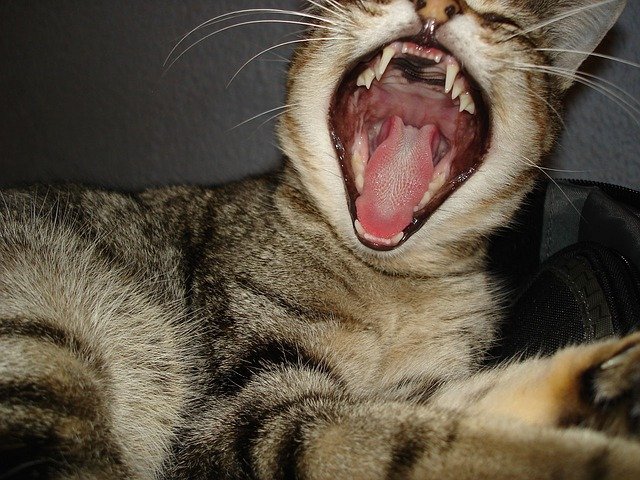Is your cat’s mouth dry? This may not seem like a big deal, but dry mouth can actually point to a serious problem in cats. At East Valley Animal Hospital in Gilbert, keeping your cat healthy is our number one goal. Part of reaching that goal is educating you about potential health problems your cat may develop. Because dry mouth can indicate some of these problems, it’s important to understand how it affects your cat.
What Exactly is Dry Mouth?
Dry mouth, known in the medical world as xerostomia, refers to a deficiency of saliva in the mouth. Salvia is essential to a cat’s body, as it lubricates the mouth for swallowing and consuming food. When a cat’s mouth is dry, it means something is decreasing his saliva production.
Causes of Dry Mouth in Cats
There are many reasons why your cat may have a dry mouth. More often than not, dry mouth indicates an underlying issue, such as:
- Anxiety or stress. Some cats are more prone to anxiety than others. If you’ve experienced anxiety yourself, you know that increased agitation can alter the way you breathe. Anxious humans and cats alike may start breathing through their mouths, causing dryness. Consider any major changes that could be making your cat anxious.
- Medical side effects. As with human medications, dry mouth is an occasional side effect of cat medications.
- Severe dehydration. We’re referring to dehydration caused by an internal issue. That said, make sure your cat is not exposed to too much hot, dry air and that he has free access to water at all times. If your cat’s mouth is dry and he’s also vomiting or having diarrhea, he’s losing too much fluid, and needs immediate veterinary care.
- Nerve damage. Is your cat a rescue? His medical history may include trauma or nerve damage that you may or may not know about. Either of these can cause issues with normal saliva production.
- Endocrine disorders, such as hypothyroidism.
- Kidney, liver, or pancreas damage. Your cat should receive blood tests every year to determine the health of these organs. The proper functioning of all three is essential to your cat’s livelihood. Dry mouth can be a sign that there is something wrong with one of these organs. That’s one of the countless reasons it should not be ignored.
Symptoms of Dry Mouth in Cats
Since your cat can’t tell you if he has a dry mouth, you’ll have to rely on outward signs. Here are a few secondary symptoms to look for:
- Dry, cracked tongue. Your cat’s tongue will look distinctly dry and shriveled when his mouth is too dry.
- Frequent licking of lips. This is your cat trying to wet his own mouth. If you notice him doing it a lot, dry mouth may be the culprit.
- Insatiable thirst. It’s good for your cat to drink water. But if you notice an excessive reluctance to walk away from the bowl, don’t take it lightly.
- Halitosis. While a little fishy odor is normal for a cat’s breath, overwhelming bad breath may indicate poor saliva production.
Keep in mind that dry mouth can cause issues on its own. Conditions like gingivitis or dental erosion can arise as a result of mouth dryness. Get to the bottom of it so your cat doesn’t end up with health complications.
Treatment
Because dry mouth is linked with so many diseases, the best treatment is consistent veterinary exams. Attending your regular visits will prevent diseases that cause dry mouth. It’s also essential that you maintain your cat’s oral health by brushing his teeth daily.
In addition to unlimited access to water, your veterinarian might prescribe ointment or mouthwash. Always check with your vet first before you use any such product on your cat. If there is a more serious underlying problem, the specific treatment will depend on what the exact issue is.
Gilbert’s Favorite Vet
Our team at East Valley Animal Hospital is proud to provide top-notch medical care. If you think your cat has a dry mouth, bring him in for an appointment. We’ll try to get to the bottom of it as quickly as possible so that he can get back to his old self in no time.
Image by Public Domain Pictures on Pixabay.

